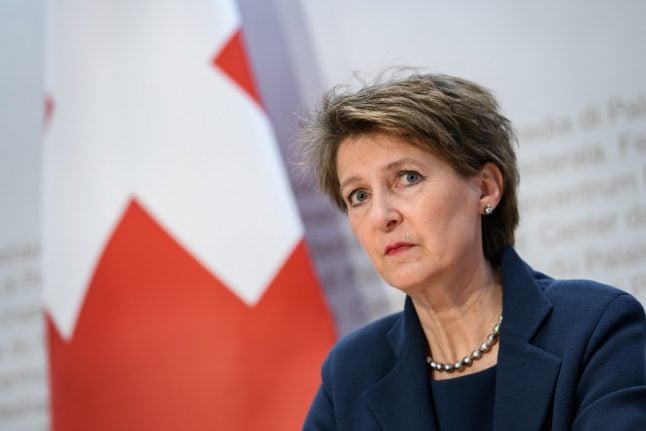The Swiss government on Monday declared a state of emergency lasting until April 19 in a bid to combat the coronavirus pandemic.
“A strong reaction is needed across the country. And we need it now,” Swiss President Simonetta Sommaruga told a press conference.
All shops, restaurants, bars, and entertainment and leisure facilities are to shut down, with the exception of grocery stores, pharmacies and health facilities.
Switzerland will also tighten its border controls with Germany, France and Austria at midnight (2300 GMT), having already ramped up restrictions at the southern border with hard-hit northern Italy.
The government also approved the use of up to 8,000 troops to support the regional cantons in their hospitals, logistics and security.
Infections in Switzerland jumped on Sunday by nearly 1,000 cases in 24 hours to 2,200 and 14 deaths were recorded from the virus across the country.
“Given the accelerating spread of the coronavirus, the Federal Council is further strengthening measures to protect the population,” the government said a statement
“It reclassifies the situation in Switzerland as an 'extraordinary situation'… which enables it to enact national measures, that is to say identical for all the cantons,” the country's 26 cantons.
“All public or private events are prohibited from midnight tonight.
“All shops, markets, restaurants, bars, entertainment and leisure establishments such as museums, libraries, cinemas, concert halls, theatres, sports centres, swimming pools and ski areas are closed.”
Food shops, petrol stations, hotels, banks and post offices are among the facilities that will remain open.
Switzerland's government announced Friday that it would make $10.5 billion available immediately to help companies and employees to make it through the crisis.
***
Earlier on Monday The Swiss region of Geneva declared a “state of necessity” due to the coronavirus global pandemic, shutting bars and restaurants and limiting gatherings to just five people.
Geneva city, home to many international institutions including the United Nations' headquarters in Europe and the World Health Organization, banned non-work gatherings of more than five people both indoors or outdoors.
“The council took strong restrictive measures this morning to make haste. Geneva will be in semi-containment,” canton council president Antonio Hodgers told a press conference, according to the ATS national news agency.
Shops, restaurants and bars were to close on Monday at 6:00pm (1700 GMT) until March 29.
Cinemas, theatres, sports centres and all other entertainment outlets will be shut.
Hotels, food shops, pharmacies, fuel stations and small kiosks will remain open along with food markets.
Postal and banking services can remain open, as well as outlets offering take-away or delivery food, though hairdressers, barbers and prostitutes were among those told to shut down activities.
“Meetings of more than five people inside and outside are now prohibited,” the cantonal authorities said in a statement.
Professional meetings can go ahead as long as state social distancing and hygiene guidelines can be respected.



 Please whitelist us to continue reading.
Please whitelist us to continue reading.
Member comments